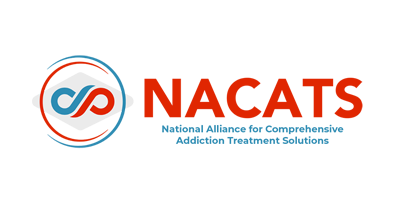
It’s impossible to ignore the impact that fentanyl has had in cities across the United States. Over the last decade or so, we’ve seen opioid overdose deaths skyrocket as people are knowingly and unknowingly consuming this incredibly potent drug. It’s so potent, in fact, it takes only 2 mg of fentanyl to end a person’s life. Because of this, each time a person consumes fentanyl could potentially be their last.
While addiction to fentanyl may sound dire, there is always hope. ReVIDA Recovery® is here to help inform you about the dangers of fentanyl and explore your treatment options.
What Is Fentanyl?
Fentanyl is an entirely synthetic (man-made) opioid compound that was first created in 1960. From its creation, it was marketed and prescribed for the treatment of moderate to severe levels of pain, often for people post-surgery. It is one of the few opioid painkillers that is prescribed for the long-term treatment of chronic pain and is most often prescribed to people living with a high level of chronic pain who also have a tolerance to other opioid painkillers.
Fentanyl is an extremely potent opioid drug. It is believed to be 80 to 100 times stronger than morphine. Because of its potency, over time, it has shifted from simply a way to help people manage life with a high level of pain, to a commonly misused street drug that holds a high risk for overdose.
The highest risk for overdose occurs when the drug is repackaged and sold as counterfeit versions of other known opioid painkillers. Fentanyl may also be added to heroin to increase its potency. Too often, consumers of street-level opioids believe they are buying one drug, but in reality, are buying a fake version of the drug that contains the much more potent and dangerous fentanyl. This situation can potentially lead to overdose and death.
The Scope of Fentanyl Misuse
Fentanyl has become one of the most popular drugs in the past five years. It was confirmed that in 2019, fentanyl was a driver in the death toll of the opioid crisis, as the overdose death rate increased from 2018 (47,600) to 2019 (49,860).
As mentioned earlier, fentanyl is potent, so plenty of drug dealers mix it with other substances. This makes heroin far more dangerous. The scope of this problem extends throughout America, but the issue is particularly critical in the state of Tennessee.
Opioid use disorder (OUD) has been on the rise in Tennessee. Approximately 70,000 people in Tennessee suffer from OUD, and Tennessee is ranked 3rd overall in prescription drug misuse. While the misuse of prescription opioids has decreased, heroin and fentanyl have been on a steady incline for years now. Why is that?
It may be due to the synthetic nature of fentanyl. Because fentanyl is inexpensive, dealers use fentanyl made in illegal labs and mix it in with their other products. In this case, it’s being mixed in with their heroin. The death toll rises, and fentanyl addiction increases. However, there are still options for treatment. What are the options for fentanyl addiction treatment? ReVIDA Recovery® is here to answer that very question.
Medication-Assisted Treatment (MAT) for Fentanyl Addiction
Medication-assisted treatment, or MAT, is a form of treatment that can help with those withdrawal symptoms. MAT uses a combination of drugs and therapy to help patients with their recovery. These medications are approved by the Food and Drug Administration (FDA) and are safe to take without the threat of addiction. A physician or medical professional will prescribe MAT and help you through each step. One of the medications used in MAT is called buprenorphine (Suboxone®).
Buprenorphine (Suboxone®)
Buprenorphine (Suboxone®) is a medication that can be used in the treatment of opioid use disorder (OUD). At ReVIDA Recovery®, we use Suboxone® because it helps with the withdrawal symptoms by giving patients the effects of opioids at a much weaker level. When buprenorphine (Suboxone®) is taken the right way, it can decrease the chances of an overdose and limit the chances of misuse.
What Makes Buprenorphine (Suboxone®) Different?
Buprenorphine (Suboxone®) is the medication utilized in MAT that can be prescribed to you by your doctor. This makes treatment easier for everyone to get, as opposed to only getting treatment in specialized treatment programs. Because buprenorphine (Suboxone®) is more accessible, this gives patients more time to focus on other forms of treatment.
How Is It Utilized?
To take buprenorphine (Suboxone®), the patient must be free of opioids for 12 to 24 hours. If not, withdrawal symptoms from the opioid may appear. Buprenorphine’s (Suboxone®) effects are long-lasting, so once a patient starts to gain tolerance, the dosage can drop.
What to Know Before Buprenorphine (Suboxone®) Treatment
With buprenorphine (Suboxone®) and MAT in general, patients should talk to their doctors to see if this is the right form of treatment for them.
MAT is approved by doctors and is safe for patients. MAT is also proven to be effective. It has been shown to increase treatment retention and improve the survival of the patients. MAT is part of a comprehensive treatment plan that is tailored to the individual patient.
Group Therapy
You are not alone. There is no need to suffer in silence, which is why we offer group therapy at ReVIDA Recovery®. Group therapy helps patients because it takes out the stigma of fentanyl use disorder. People are struggling with fentanyl use disorder just as you are. Group therapy helps patients feel less isolated.
Individual Counseling
Sharing with a large group can be super intimidating. One-on-one counseling is helpful because it provides you with one-on-one attention, but it also can provide you with the tools to become more comfortable discussing the addiction.
Outpatient Treatment
ReVIDA Recovery® understands that some patients lead busy lives, and know that every patient is different. While inpatient treatment may work for some, outpatient programs may work better for other patients. This way, patients get used to being back in the workforce and the groove of their usual lives.
In outpatient treatment, there is still therapy (both one-on-one and group), there are still educational courses, and there are still resources available for you to keep focusing on your recovery in your everyday life.
Medication-Assisted Treatment May Be Right for You
Here at ReVIDA Recovery®, we’ll work with you to determine whether medication-assisted treatment is appropriate for your unique situation. In many cases, MAT can help a person avoid the uncomfortable symptoms of opioid withdrawal and focus on instilling healthy habits that can form the foundation for long-term success in recovery.
Recovery doesn’t look the same for every patient. What does stay the same, though? Our hope for you. A little bit of hope can go a long way, but we have far more than a little hope. We have a whole team of hope to help you on your journey to recovery.
Call Today to Start Your Journey
The first step in finding lifelong success in recovery is making the decision to start your journey.
Our mission at ReVIDA Recovery® is to empower people to reclaim their lives from opioid use disorder. Our facilities are safe spaces and we are developing more outpatient centers to help more people on their journey.
Call ReVIDA Recovery® today to start your journey toward recovery at (844) 972-4673.

FAQs About Addiction Treatment
Outpatient programs that incorporate evidence-based treatment techniques, both group and individual therapy, classes that educate about addiction and related issues, and 12-step meetings have shown to be effective in helping people overcome opioid addiction.
At ReVIDA Recovery®, our Outpatient program is both flexible and structured, allowing you to receive the treatment you need while still fulfilling obligations at home.
When a person has become physically dependent on opioids and suddenly stops taking them, they can expect to experience an intense amount of discomfort and physical cravings. The goal of medication-assisted treatment is to give the person certain medications that offer relief from withdrawal symptoms and allow them to focus on learning healthy habits that can lead to long-term success in recovery.








